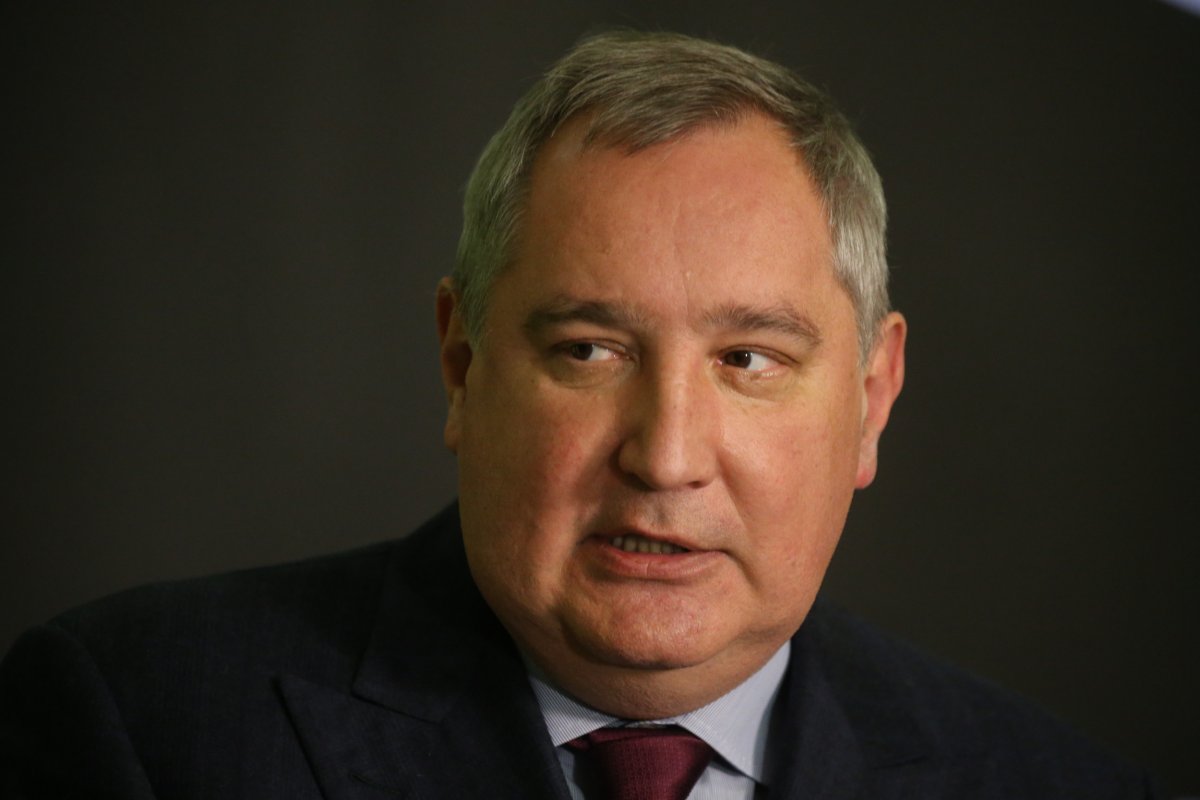Russian space chief Dmitry Rogozin has provided on update on his country's involvement with the International Space Station (ISS) amid the ongoing conflict, which has put on a strain on relations with the West.
On Saturday, Rogozin, who is the director general of Roscosmos—the Russian space agency—spoke with state-owned Rossiya-24 television, announcing details about the proposed Russian Orbital Service Station, which is scheduled to begin construction in 2025, while also commenting on the ISS project.
The ISS, the first component of which was launched in 1998, is operated by an international collaboration involving NASA, Roscosmos, the European Space Agency, as well as the space agencies of Canada and Japan.

The station is divided into two main sections, one of which is operated by Roscosmos, while the other is run by the U.S. and the other nations involved in the project.
However, the ongoing invasion of Ukraine and subsequent international sanctions has put a strain on Russia's relationship with the U.S. and other ISS nations, raising questions about the country's continued cooperation.
In comments to Rossiya-24 on Saturday, Rogozin said, as reported by Russian state-owned news agency TASS, that Russia's involvement with the ISS was fading into the background but the country would still cooperate until 2024, at least.
"The ISS will work exactly as long as the Russian side needs to work on it," Rogozin said. "There are technical problems. The station has been operating beyond its lifespan for a long time. We have a government decision that we are working until 2024."
The current operating agreement for the space agencies involved with the ISS ends in 2024, although most of the partner nations have expressed that they are hoping to continue with the project until 2030.
Earlier this year, it was reported by some media outlets that Russia was planning to quit the ISS, blaming Western sanctions, following comments Rogozin made on state television.
Rogozin said: "The decision has been taken already, we're not obliged to talk about it publicly. I can say this only—in accordance with our obligations, we'll inform our partners about the end of our work on the ISS with a year's notice."
But some commentators, such as Ars Technica space editor, Eric Berger, have reported that this comment simply meant Russia will give its ISS partners one year's notice before leaving the project.
While it is not known whether or not Russia will decide to depart the project in 2024, particularly amid the Ukraine conflict, NASA Administrator Bill Nelson recently said that in his view, he did not think the chances of Roscosmos withdrawing were high.
"They are not pulling out," Nelson said on May 3 during a hearing of the U.S. Senate appropriations subcommittee, as reported by SpacePolicyOnline. "I see nothing in the very even-keeled professional relationship between the cosmonauts and the astronauts, between Mission Control in Moscow and Houston, in the training of Russian cosmonauts in America and American astronauts in Moscow and Baikonur."
"I see nothing that has interrupted that professional relationship no matter how awful Putin is conducting a war with such disastrous results in Ukraine," he said. "We see every reason that the Russians are going to continue on the space station for the immediate future and, of course, we personally hope that they will continue with us all the way to 2030."
Uncommon Knowledge
Newsweek is committed to challenging conventional wisdom and finding connections in the search for common ground.
Newsweek is committed to challenging conventional wisdom and finding connections in the search for common ground.
About the writer
Aristos is a Newsweek science reporter with the London, U.K., bureau. He reports on science and health topics, including; animal, ... Read more
To read how Newsweek uses AI as a newsroom tool, Click here.








